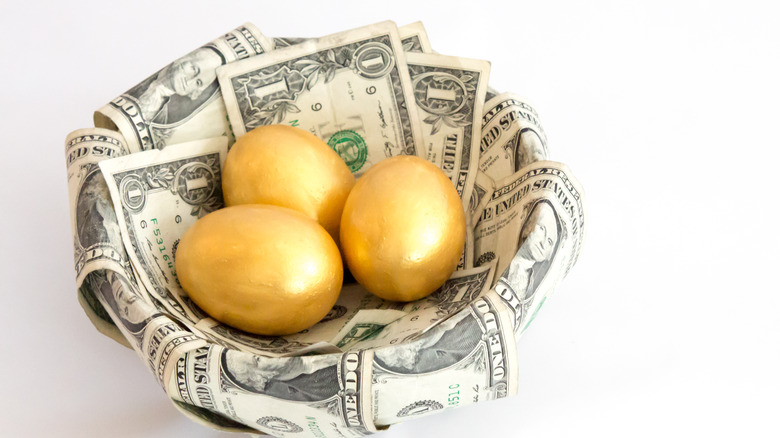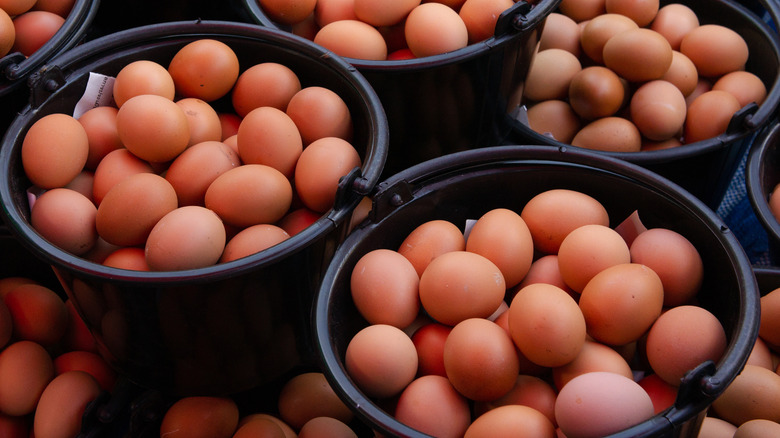Chicken Flocks Are Being Rebuilt, Which Is Good News For Egg Prices
While it might have taken longer than anticipated, egg-laying hen flocks are increasing. As many consumers saw by the lack of supply and higher than normal egg prices, avian influenza impacted almost 59 million poultry flocks. Although the causality dilemma of the chicken and the egg might be a head-scratcher, the reality is that fewer hens results in fewer eggs, which causes higher egg prices. As the flock numbers increase, egg prices should stabilize.
Even though the upcoming Easter holiday can see a spike in egg demand, spring and summer months will see purchases decrease. Combining lesser demand, increased flocks, and efficient supply chain management, Reuters projects that egg prices will fall more than 25% this year. Although the upcoming bird migration could see avian influenza numbers spike, the hope is that the rebuilt flocks will be able to offset any potential additional infections. Without any additional negative factors, the belief is that egg prices have hit their peak.
Egg-flation, shrink-flation, and other food price concerns have filled the news cycle. But the situation isn't necessarily a new concept; the economy has ebbed and flowed throughout history. When unforeseen natural casualties impact food supplies, prices will fluctuate (which consumers don't appreciate). Over time, the situation will regulate, and prices will stabilize. And that dozen eggs should become more reasonably priced.
Is there a proactive way to hedge against future egg-flation?
When the avian flu crisis hit the poultry flocks, both farmers and consumers felt the impact. According to the BBC, bird flu can see annual spikes in the autumn yet decreases in spring and summer. Although bird migration can impact that scenario, some people in the industry are questioning whether vaccination could be a viable solution to lessen the annual impact or potentially avoid a wider outbreak.
Reuters reported that more than 30 countries vaccinate their domestic flocks against avian influenza. Specifically, China, the world's largest egg producer, vaccinates its flocks. Although it will take years to fully appreciate the potential impact, the concept is straightforward. If the flock population is stable, there should be fewer supply issues, which means a more regulated egg price.
The downside to vaccination is that some countries do not permit the sale of vaccinated poultry and poultry products. Currently, the Biden administration is evaluating avian influenza vaccinations, and the U.S. poultry industry is contemplating how to accomplish that task. If both industry and government can find a way to avoid eliminating entire flocks due to avian flu, that scenario can be beneficial for egg prices. On the other hand, some consumers may not want to purchase food that has been influenced by vaccination. In the end, the solution won't be implemented overnight. For now, the most viable options will hatch after much testing and consideration.

